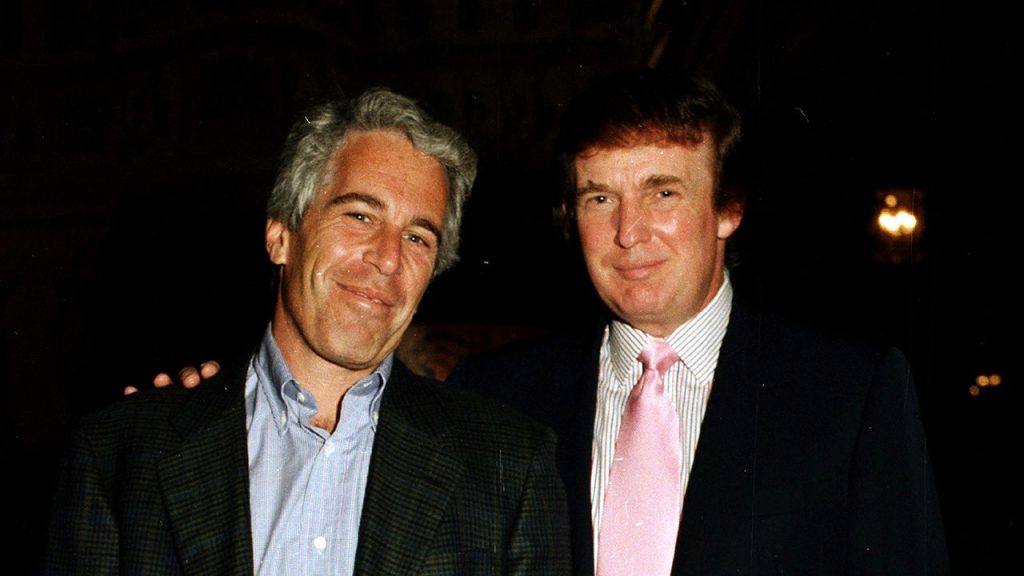Trump Signs Legislation to Release Jeffrey Epstein Files
In a significant development for transparency advocates, President Donald Trump announced he has signed legislation authorizing the Justice Department to release files related to Jeffrey Epstein, the financier who died in custody while facing sex trafficking charges. The announcement came after nearly unanimous bipartisan support in Congress, reflecting rare political unity on an issue that has sparked public interest for years.
“I have just signed the bill to release the Epstein files,” Trump declared on his Truth Social platform, adding that he personally requested House Speaker Mike Johnson and Senate Majority Leader John Thune to advance the legislation. Trump emphasized that his administration had already provided Congress with approximately 50,000 pages of documents, contrasting this with what he characterized as the Biden administration’s inaction on the matter. The timing of Trump’s support is notable, as it follows increased scrutiny of his own historical connections to Epstein, particularly after his Justice Department initially declined to unseal investigation materials, stating that the case had been closed. Trump has consistently maintained that he has “nothing to hide” regarding Epstein.
The Epstein Files Transparency Act passed with overwhelming support—421-1 in the House and by unanimous consent in the Senate. The legislation specifically directs the Justice Department to publish unclassified records related to Epstein and his associate Ghislaine Maxwell, including investigative materials, trafficking allegations, internal communications, and details surrounding Epstein’s death investigation. Importantly, the law includes provisions allowing for withholding or redacting information that would reveal victims’ identities, contain child abuse materials, include classified content, or potentially threaten active investigations. Attorney General Pam Bondi has committed to complying with the law, which requires releasing the files online in a searchable format within 30 days of the bill’s signing.
Despite the near-unanimous support, some concerns were raised about the potential implications of the release. Representative Clay Higgins, the lone dissenting vote in the House, argued that the bill could harm “thousands of innocent people—witnesses, people who provided alibis, family members.” Speaker Johnson, though ultimately voting for the measure, expressed similar reservations, questioning who would be willing to come forward as witnesses or informants in future cases if their identities could later be revealed through congressional action. These concerns highlight the delicate balance between public transparency and protecting individuals involved in sensitive investigations.
The push for releasing the files gained significant momentum after Democrats on the House Oversight Committee released emails from Epstein that mentioned Trump, prompting Republicans to counter by releasing their own collection of 20,000 pages of documents. These materials included correspondence between Epstein and various individuals, including Maxwell, where Epstein referenced Trump. In one email to Maxwell from 2011, Epstein wrote cryptically about Trump not being mentioned by a victim who had spent time with him. In another communication with author Michael Wolff in 2019, Epstein claimed that Trump “knew about the girls” and had asked Maxwell to “stop.” However, these statements remain unverified allegations from Epstein himself, and no law enforcement records have connected Trump to Epstein’s crimes.
The Epstein case continues to cast a long shadow over American public life, intersecting with politics, law enforcement, and questions about power and accountability. Epstein died by suicide in 2019 while awaiting trial on federal charges, while Maxwell was convicted on charges including sex trafficking of a minor and is serving a 20-year sentence. The forthcoming release of these documents represents a significant moment for those seeking answers about Epstein’s criminal activities and the extent of his connections to powerful figures. As the Justice Department prepares to comply with this new legislation, the public may soon gain unprecedented insight into one of the most notorious criminal cases of recent decades, though questions will likely remain about the full extent of Epstein’s crimes and the complete roster of those who may have been complicit in or aware of his activities.


